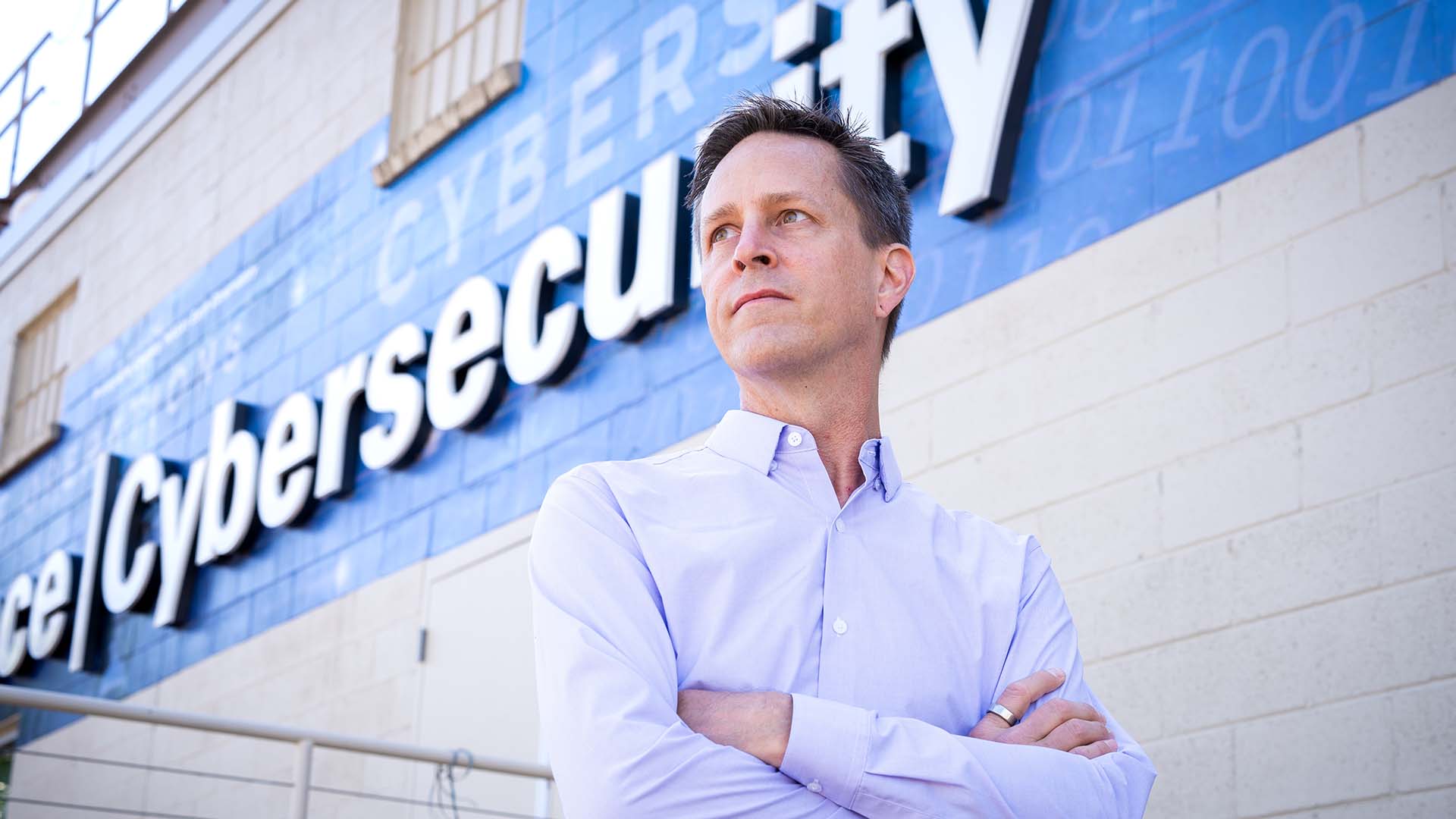Fighting crime from the classroom
Retired NCIS Director Andrew Traver joins the Criminal Justice and Criminology faculty at MSU Denver

Andrew Traver might be the most qualified first-time faculty member to ever teach Federal Law Enforcement and Terrorism on a university campus.
The recently retired leader of the Naval Criminal Investigative Service spent 26 years in the Bureau of Alcohol, Tobacco, Firearms and Explosives (ATF) as a criminal investigator special agent spanning three federal departments in his career – Treasury, Justice and Defense.
Weeks after leaving NCIS, Traver joined a new department July 1 – the Department of Criminal Justice and Criminology at Metropolitan State University of Denver, where he’ll start teaching his first two classes in August.
Traver won’t have to rely too much on textbooks for his other course, American Gangsters, having investigated and come face-to-face with members of the Hells Angels, the Aryan Brotherhood, the Latin Kings and others during an ATF career that included stints in Chicago, Denver, New Orleans, Philadelphia and San Francisco.
“I think I have a good background as a practitioner. I have a trove of what I think are interesting anecdotes that are very realistic,” Traver said. “It’s not like watching any of the scripted crime-drama television shows. It’s very real.”
Those TV shows, of course, include the long-running CBS hit “NCIS,” on which Traver consulted as part of his role with the real-life service. He also appeared in a cameo on the “NCIS Los Angeles” spinoff.
Traver accomplished a lot in his six years at NCIS. He implemented a peer-support program to help agents deal with trauma and mental-health issues, created an ombudsman office and established a leadership-and-development cell for employees.
“When I got to NCIS, an advantage I had was I had no vested interest in the status quo,” said Traver, who was only the second head of NCIS to be hired from outside of the organization.
One notable accomplishment was the establishment of the NCIS Cyber Directorate and a full career path for cyber specialists, reflecting the growing reach of cyber issues into every area of law enforcement.
“It’s one of the fastest-growing specialties in law enforcement. The biggest challenge we have is retention – we have people who like what they’re doing, but then they get an offer from some other company working from home for three times what they’re making with the government,” Traver said. “We need people coming out of universities that know what’s going on. We want to bring in new people that are well-versed in new developments.”
The irony of someone who started his law-enforcement career in the 1980s leading the way on cybersecurity isn’t lost on Traver.
“When I started my career in federal law enforcement, I was thrilled just to get a pager,” he said. “Ever go to the Cheesecake Factory? If there’s a big line and you have to wait a while, they hand you a pager now.”
Traver is excited to share his expertise with college students, whom he has appeared in front of as a guest lecturer before. He also spoke on the MSU Denver campus last year at the invitation of his former boss – he reported to MSU Denver President Janine Davidson, Ph.D., when he was at NCIS and she was the undersecretary of the U.S. Navy.
While he’s not on campus, Traver will lend his knowledge to law-enforcement initiatives in Colorado. He participated in a briefing with law-enforcement and education officials on the April threat to Columbine High School that incited a large-scale manhunt and closed many area schools, and he plans to collaborate with a Denver-based group that includes the Colorado Bureau of Investigation, the Department of Homeland Security and the FBI working to prevent and counter violent extremism.
“I’m interested in helping in any way I can since I do have a lot of experience,” he said. “Of course, law enforcement has evolved a lot over the last 30 years, but I also think that sometimes some of the most valuable skills have been sacrificed in exchange for technology. The most critical skill in law enforcement is interpersonal interaction.”







